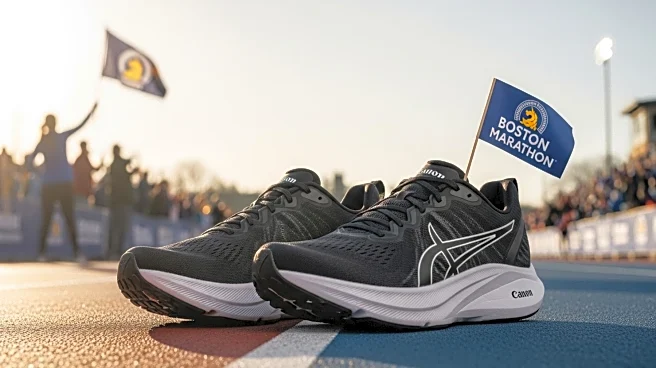What's Happening?
Kathrine Switzer, known for being the first official woman to run the Boston Marathon nearly 60 years ago, has inspired a global movement advocating for women's participation in running. Switzer's historic run challenged gender norms and paved the way for women in sports, becoming one of the most iconic moments in sports history. Her story continues to resonate, encouraging women worldwide to engage in running and sports, breaking barriers and promoting gender equality in athletics.
Why It's Important?
Switzer's groundbreaking achievement has had a lasting impact on women's sports, promoting inclusivity and challenging gender discrimination. Her actions have inspired countless women to pursue running, contributing to increased female participation in marathons and other athletic events. This movement not only empowers women but also fosters a culture of equality and diversity in sports, influencing public policy and societal attitudes towards gender roles in athletics.
What's Next?
The movement inspired by Switzer is expected to continue growing, with more initiatives aimed at supporting women in sports. Organizations and advocacy groups may increase efforts to promote gender equality in athletics, potentially influencing sports regulations and policies to ensure equal opportunities for women. The ongoing dialogue around gender equality in sports may lead to further advancements in women's participation and representation in athletic events globally.
Beyond the Headlines
Switzer's story highlights broader cultural shifts towards gender equality and the empowerment of women in traditionally male-dominated fields. Her legacy serves as a reminder of the importance of challenging societal norms and advocating for equal rights, inspiring future generations to continue the fight for gender equality across various sectors.










